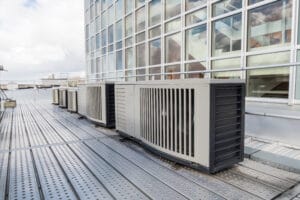How Is a Commercial HVAC System Different from a Residential Unit?
How Is a Commercial HVAC System Different from a Residential Unit?

Here in the Southland, air conditioning is a fact of life for most homeowners who don’t live on the shoreline. And certainly, heating is a must for everyone during our chilly winters. But do you know the basic differences between a commercial and residential HVAC system? Understanding the nuances between them can help you as a commercial property owner save more money when it comes to maintenance, repair, and even installation of a new system.
Know the Differences and Save More Money
The biggest difference between these two types of systems is size. Because residential systems are typically smaller than commercial ones, keeping their interiors more comfortable is much easier. Also, climate control for a residential system is typically less complicated for a commercial space. Without any industrial demands or multiple IT rooms to heat up the space, it is easier to heat and cool several rooms that are all largely constructed in the same way and for the same purposes.
Using a commercial HVAC system will usually require more complicated types of equipment. Because it is larger, the placement of the unit is an issue. Generally, a residential HVAC system will fit in a backyard corner, while a large commercial building will typically have all its heating and cooling equipment on the roof.
Another separation between the two systems is noise. While running loud is seldom an issue for home units, the demands of a commercial HVAC system mean it will make more sound.
When it comes to commercial heating and air conditioning systems drainage can be a big problem. Especially because more moisture accumulates when there is more equipment in place.
When it comes to commercial heating and air conditioning systems drainage can be a big problem. Especially because much more moisture accumulates when there is more equipment in place.If handled inadequately, the moisture in a commercial system can turn a large building into a sick one, with mold, and mildew accumulating between the walls. Therefore, comprehensive drainage is an essential part of any commercial HVAC design.
Finally, maintenance requirements are another important difference between a residential system and a commercial HVAC system. Commercial units require more rigorous inspections and regular maintenance to keep than residential ones. Because of this, Air-Tro recommends an annual checkup for both home and commercial HVAC systems.
Do you have questions about commercial HVAC or residential systems? If so, call Air-Tro, Southland’s favorite heating and cooling specialists at 626-357-3535.
